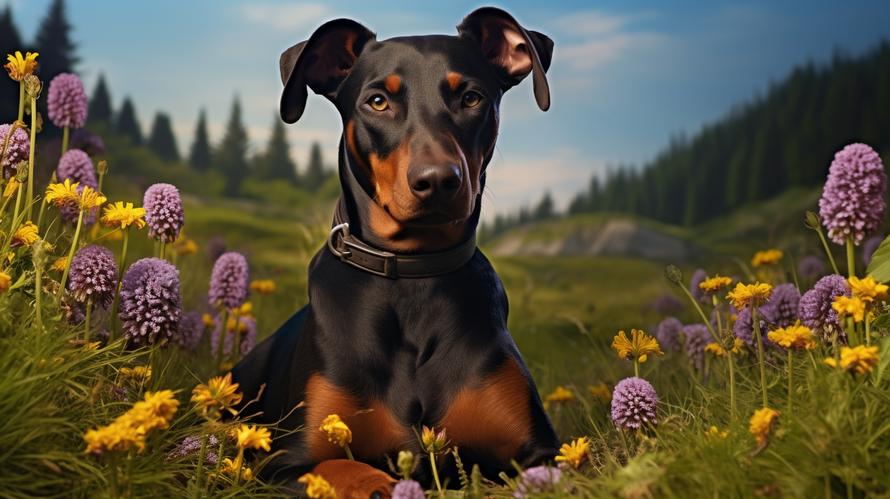Did you know that one of the most iconic images of a Doberman Pinscher is that of a sleek, fearless guard dog, poised and ready to protect his family at a moment’s notice? However, there’s more to this breed than just vigilance and bravery. They can also be gentle, affectionate, and incredible family companions. The question is, are they difficult to handle?
It’s easy to imagine that such a dog might be complicated to handle, especially for the first-time dog owners. Many stories abound — some describing Dobermans as uncontrollable, others labelling them as gentle giants. So what’s the truth? Are they difficult dogs, or is their reputation undeserved? Let’s unravel the mystery, shall we?
First off, it’s important to dispel the myths around the Doberman Pinscher. Yes, they are intelligent, and yes, their fearless nature makes them excellent guard dogs. But contrary to what many believe, Dobermans are not inherently aggressive or uncontrollable. In reality, aggression in dogs is typically a result of poor training and socialization, and Dobermans are no exception to this rule.
In the hands of a responsible owner who provides proper training, socialization and care, a Doberman can be a well-behaved and loving pet. However, due to their high energy levels and intelligence, Dobermans can indeed be a challenge for novice dog owners or those unprepared for their needs.
Dobermans crave both physical and mental stimulation. They enjoy being involved in the action and don’t do well with boredom or being left alone for long periods. A bored Doberman can become destructive, which can be a challenge for those not prepared to provide the exercise and stimulation this breed requires.
Training a Doberman also requires effort and consistency. Given their intelligence, they can learn commands swiftly, but they also have a stubborn streak and need an owner who won’t let them get away with bad behavior. This doesn’t mean being harsh, but instead, it calls for positive reinforcement methods that reward good behavior.
When it comes to social skills, the importance of early and continuous socialization cannot be overstated for Dobermans. This breed can be wary of strangers, so it’s crucial to expose them to a variety of people, environments, and situations to help them become well-adjusted adults.
When it comes to health, Dobermans, like any breed, are prone to particular genetic health conditions, including dilated cardiomyopathy, hip dysplasia, and Von Willebrand’s disease. Regular vet check-ups and a healthy lifestyle can help manage these conditions, but potential Doberman owners should be prepared for possible health concerns down the line.
So, are Dobermans difficult dogs? The answer isn’t black or white; it largely depends on the situation and the owner. They have their challenges. They need training, exercise, socialization, and they require a firm yet loving hand. They are not ideal for first-time dog owners or those who can’t commit the required effort and time.
But in return for all the work, owning a Doberman can be incredibly rewarding. They are loyal, protective, and incredibly loving to their humans. They can quickly become a beloved family member, known for their gentleness and affectionate demeanor towards those they guard.
The key in successfully owning and benefiting from a Doberman Pinscher’s companionship is understanding and meeting its needs. These proactive steps ensure not just a well-adjusted and obedient Doberman but one that’s happy and thriving.
In conclusion, a Doberman Pinscher is not necessarily a ‘difficult’ dog. However, he is a challenging dog. But then again, anything worth having comes with its fair share of challenges, right? After all, a diamond is nothing but a chunk of coal that did well under pressure! So, if you’re up for the challenge, a Doberman Pinscher might just be the perfect dog for you.



